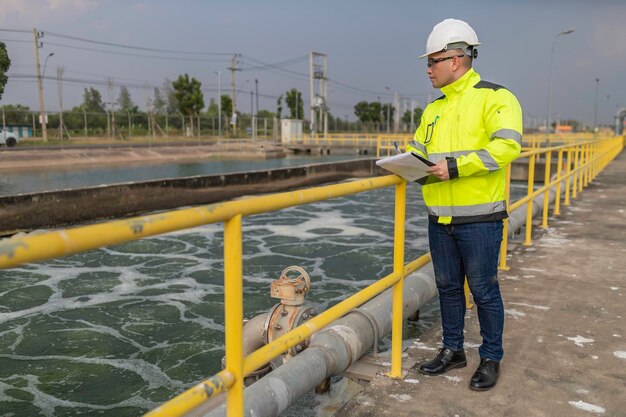Introduction
In the dynamic landscape of the chemical industry, securing the right chemical sourcing partner is paramount for seamless operations and sustainable growth. The evolution of chemical sourcing has been pivotal since the industry’s inception, tracing back to the late 19th and early 20th centuries when industrial chemistry began to flourish. Over the decades, advancements in technology, global trade, and stringent regulatory frameworks have significantly shaped the way companies approach chemical sourcing. As companies strive for excellence in quality, efficiency, and sustainability, the significance of selecting the right chemical sourcing partners cannot be overstated.
Historically, the chemical industry’s transformation has seen the rise and fall of many sourcing partnerships, underscoring the criticality of strategic alliances. For instance, the collaboration between BASF and Dow Chemical in the 20th century set benchmarks in chemical manufacturing, illustrating how robust partnerships can drive innovation and market leadership. Today, in an era characterized by rapid technological progress and heightened environmental consciousness, the stakes are even higher. Modern enterprises must navigate complex supply chains, adhere to rigorous environmental standards, and meet ever-increasing customer expectations.
Checkpoints for Choosing Right Chemical Supplier
Choosing the right chemical sourcing partner involves more than just finding a supplier; it is about building a strategic relationship that supports your business’s long-term objectives. The right sourcing partner can enhance your supply chain’s efficiency, ensure consistent quality, and provide competitive advantages in the marketplace. For example, DuPont’s strategic partnership with Honeywell has exemplified how aligning with the right partners can lead to breakthroughs in product development and market expansion. Furthermore, the global chemical industry is projected to grow to $4.1 trillion by 2025, highlighting the immense opportunities and the need for prudent partner selection.
In light of these developments, here are ten essential considerations that you should consider while choosing the perfect sourcing partner for your chemical sourcing needs. By illuminating these factors, we aim to navigate this terrain, uncovering the insights and strategies necessary to forge robust alliances in the realm of chemical material sourcing.
1. Assess Your Needs and Requirements
Before embarking on the search for a chemical sourcing partner, it’s crucial to comprehensively assess your needs and requirements. Start by identifying the specific types of chemicals you require, along with their quantities, delivery schedules, and any special handling or storage conditions. Understanding the exact specifications and quality standards—such as ISO certifications or compliance with REACH regulations—will ensure that your sourcing partner can meet these demands. Additionally, consider the logistical aspects such as the frequency of deliveries and the flexibility needed to accommodate changes in demand. For instance, if your business operates in a sector with seasonal fluctuations, a sourcing partner that can scale operations accordingly is essential.
Elchemy’s tech-enabled system can streamline this process, allowing customers to specify and track their requirements in real-time, ensuring that all needs are met with precision. By thoroughly assessing your needs and articulating them clearly, you set the stage for identifying and partnering with suppliers who are well-equipped to support your business’s goals, thus paving the way for long-term success.
2. Research Potential Sourcing Partners
Conduct thorough research to create a list of potential sourcing partners. Utilize a variety of resources to ensure a comprehensive search. Industry directories such as ThomasNet, Chemical Register are excellent starting points for finding reputable suppliers. Trade associations, including the National Association of Chemical Distributors (NACD), the European Association of Chemical Distributors (FECC) can provide valuable insights and recommendations. Attending industry trade shows and conferences can also provide opportunities to meet potential partners and learn more about their offerings. For instance, events like the ChemExpo India Exposition offer networking opportunities and firsthand knowledge of supplier capabilities.
Elchemy, is recognized for its innovative technology and efficient distribution network, making it a prominent name in various industry directories and forums. Recently, Elchemy was featured in the ICIS Top Global Distributors List, underscoring its reputation and reliability in the chemical sourcing sector. This recognition can be verified through platforms like those mentioned above, ensuring you connect with a trustworthy and efficient partner.
3. Evaluate Quality and Compliance
Quality is non-negotiable when it comes to chemical sourcing. To ensure you are partnering with reliable suppliers, verify that potential partners adhere to industry standards and possess necessary certifications such as ISO 9001 for quality management, REACH for chemical safety, or GMP for good manufacturing practices. Request detailed documentation of their quality control processes, including audits, testing protocols, and traceability measures. This will provide assurance that their products consistently meet high standards. For instance, BASF, a global leader in the chemical industry, rigorously evaluates its suppliers’ compliance with environmental, health, and safety regulations. Such stringent practices ensure that their supply chain remains robust and trustworthy.
Request samples from potential partners to personally verify the quality of their materials. According to a recent survey by Chemical Week, over 70% of companies reported significant improvements in product quality after implementing rigorous supplier evaluation processes. Elchemy prioritizes quality assurance and provides assistance at each step, ensuring that all materials meet stringent industry standards and customer specifications.

4. Consider Financial Stability of Supplier
The financial stability of your sourcing partner is crucial for long-term reliability. Review their financial statements, credit ratings, and business history to assess their financial health. Utilize reputable sources such as Standard & Poor’s (S&P) Global, Moody’s Investors Service, Fitch Ratings, Bloomberg Terminal, Thomson Reuters Eikon, Morningstar, Dun & Bradstreet, and the SEC EDGAR Database. Additionally, visit company websites and their investor relations sections for the latest financial reports and updates. A financially stable partner is less likely to face disruptions that could impact your supply chain. For example, during the 2008 financial crisis, companies with robust financial health, like Dow Chemical, managed to maintain their supply chains effectively despite the economic downturn. This highlights the importance of partnering with financially secure firms.
By ensuring that your partner has a solid financial foundation, you mitigate risks associated with supply chain interruptions, price volatility, and service inconsistencies. Elchemy’s operational efficiencies and economies of scale enable it to offer competitive pricing and maintain financial stability, ensuring a reliable supply chain for its customers.
5. Assess Suppliers Supply Chain Capabilities
Evaluate the supply chain capabilities of potential partners, including their production capacity, lead times, and logistics. Assess their ability to scale production to meet your demands and their efficiency in managing inventory. Geographical proximity to your operations is also critical, as it can significantly impact delivery times and costs. Moreover, assess their logistics network, including their partnerships with transportation providers and their ability to handle customs and regulatory requirements smoothly. A partner with a robust logistics infrastructure can help mitigate risks associated with delays and disruptions.
According to a study by Deloitte, companies with highly efficient supply chains have 15% lower supply chain costs and over three times faster cash-to-cash cycles than those with less efficient supply chains. Elchemy excels in this area by leveraging a tech-enabled platform that provides live shipment tracking and streamlines documentation, enabling customers to manage their procurement processes more efficiently and enjoy the shortest lead times in the industry.
6. Review Suppliers Reputation and References
A partner’s reputation in the industry can offer invaluable insights into their reliability and service quality. Look beyond surface-level claims by examining reviews and testimonials from other businesses in the industry. Platforms such as Dun & Bradstreet Ratings, the National Association of Chemical Distributors (NACD), and the European Association of Chemical Distributors (FECC) can provide valuable insights and recommendations.
Furthermore, ask potential partners for references and take the time to speak with their current clients to gain firsthand accounts of their experiences. Inquire about the partner’s track record in meeting deadlines, resolving issues promptly, and maintaining consistent quality standards. Elchemy’s commitment to customer satisfaction and quality has earned it a solid reputation among its global clientele. The company’s adherence to stringent quality standards and proactive approach to customer service is reflected in numerous positive testimonials and references.
7. Evaluate Sourcing Partners Customer Service
Good customer service is essential for a smooth partnership. Assess the responsiveness and professionalism of potential partners during your initial interactions. Gauge their ability to provide technical support, handle emergencies, and address any issues that may arise promptly and effectively. Effective customer service can make a significant difference in maintaining smooth operations and minimizing disruptions. Look for metrics such as response time, resolution time, and customer satisfaction scores to objectively evaluate their customer service quality. According to a survey by Zendesk, companies with high customer service ratings experience 60% higher customer retention rates, highlighting the importance of excellent customer support.
Elchemy prides itself on providing exceptional customer service, ensuring that its clients receive prompt support and assistance at every stage of their procurement process. Their commitment to superior customer service is reflected in high customer satisfaction ratings and numerous positive testimonials from clients who value their proactive and responsive approach.
8. Consider Environmental and Ethical Practices
Sustainability and ethical practices are becoming increasingly important in the chemical industry. Evaluate potential partners based on their environmental policies, waste management practices, and commitment to sustainability. Look for evidence of adherence to a Supplier’s Code of Conduct, regular publication of Sustainability Reports, and possession of relevant certifications such as those from SGS, Intertek, or B Corp. Third-party audits and certifications can provide additional assurance of a partner’s commitment to ethical practices. Supply chain transparency initiatives are also crucial. Ensure that potential partners engage in transparent reporting and have clear policies regarding labour practices, environmental impact, and corporate governance.
Elchemy is committed to adhering to high ethical standards and promoting sustainable practices within the industry. They hold necessary sustainability certifications and ensure their operations align with the environmental and ethical values of their clients. Elchemy’s dedication to sustainability is not only reflected in their certifications but also in their continuous efforts to improve their environmental footprint.

9. Negotiate Terms and Conditions
Once you have narrowed down your list of potential partners, negotiate terms and conditions that are favorable for both parties. Key aspects to consider include pricing, payment terms, delivery schedules, and specific requirements such as packaging or special handling. Transparent and thorough negotiations can prevent future disputes and build a strong foundation for the partnership. Ensure that all agreements are clearly documented in a contract to avoid misunderstandings. Contracts should cover contingencies such as delays, quality issues, and force majeure events.
According to a study by the International Association for Contract & Commercial Management (IACCM), companies that actively manage their contracts and negotiations can improve their profitability by nearly 9%. Elchemy offers flexible and transparent terms and conditions, designed to meet the diverse needs of its customers while fostering a mutually beneficial partnership. Their approach ensures that both parties have a clear understanding of expectations, leading to smoother operations and stronger business relationships.
10. Establish a Partnership Agreement
Formalize the partnership with a comprehensive agreement that outlines the roles and responsibilities of both parties. This agreement should cover critical aspects such as quality assurance, confidentiality, dispute resolution, and termination conditions. Clear definitions of these elements are essential to prevent misunderstandings and ensure smooth operations. It’s beneficial to involve legal experts in drafting the agreement to ensure all potential risks and scenarios are addressed. According to a report by the Harvard Law School Program on Negotiation, well-drafted contracts can significantly reduce legal disputes and enhance partnership stability.
Elchemy’s transparent and detailed agreements ensure that customers have a clear understanding of the terms, fostering trust and long-term collaboration. By clearly outlining all aspects of the partnership, Elchemy helps mitigate risks and promotes a mutually beneficial relationship, ensuring that both parties can focus on achieving their business goals.
Conclusion
Choosing the right chemical supplier is a strategic decision that can significantly impact your business’s success. By meticulously assessing your needs, conducting thorough research, and evaluating potential partners on various critical factors such as quality, financial stability, supply chain capabilities, reputation, customer service, and adherence to environmental and ethical standards, you can forge partnerships that drive growth and innovation.
Moreover, negotiating favorable terms and establishing a clear partnership agreement are essential steps to ensure mutual understanding and long-term collaboration. The examples of industry leaders like BASF, Dow Chemical, and DuPont illustrate the transformative power of strategic alliances in the chemical industry. As the market continues to evolve, with global growth projected to reach $4.1 trillion by 2025, the importance of selecting the right partners becomes even more pronounced.
By following these checkpoints, you can navigate the complexities of chemical sourcing and build robust alliances that not only meet your immediate needs but also support your long-term strategic objectives. Elchemy’s commitment to quality, financial stability, efficient supply chain management, excellent customer service, and sustainability exemplifies the attributes to look for in a sourcing partner. Ultimately, the right partnership will enhance your supply chain resilience, ensure product quality, and contribute to your competitive edge in the marketplace.











